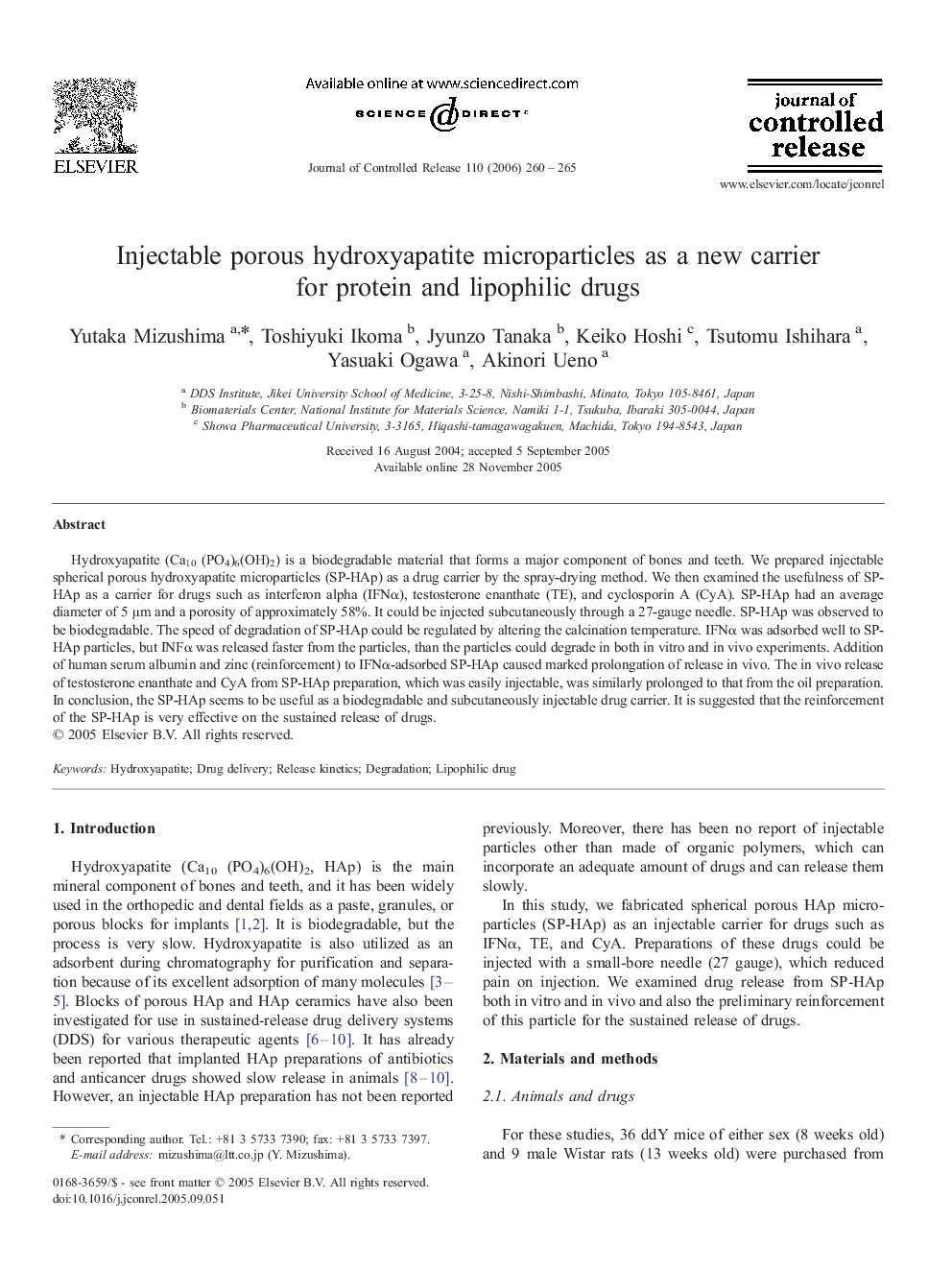| Article ID | Journal | Published Year | Pages | File Type |
|---|---|---|---|---|
| 1427725 | Journal of Controlled Release | 2006 | 6 Pages |
Hydroxyapatite (Ca10 (PO4)6(OH)2) is a biodegradable material that forms a major component of bones and teeth. We prepared injectable spherical porous hydroxyapatite microparticles (SP-HAp) as a drug carrier by the spray-drying method. We then examined the usefulness of SP-HAp as a carrier for drugs such as interferon alpha (IFNα), testosterone enanthate (TE), and cyclosporin A (CyA). SP-HAp had an average diameter of 5 μm and a porosity of approximately 58%. It could be injected subcutaneously through a 27-gauge needle. SP-HAp was observed to be biodegradable. The speed of degradation of SP-HAp could be regulated by altering the calcination temperature. IFNα was adsorbed well to SP-HAp particles, but INFα was released faster from the particles, than the particles could degrade in both in vitro and in vivo experiments. Addition of human serum albumin and zinc (reinforcement) to IFNα-adsorbed SP-HAp caused marked prolongation of release in vivo. The in vivo release of testosterone enanthate and CyA from SP-HAp preparation, which was easily injectable, was similarly prolonged to that from the oil preparation. In conclusion, the SP-HAp seems to be useful as a biodegradable and subcutaneously injectable drug carrier. It is suggested that the reinforcement of the SP-HAp is very effective on the sustained release of drugs.
